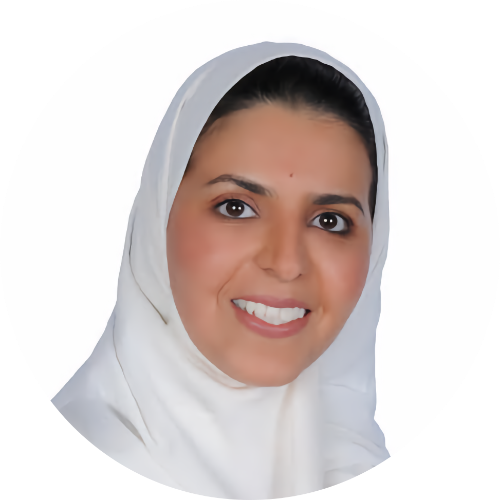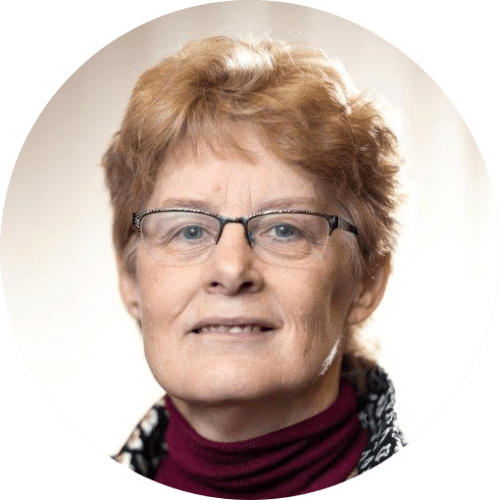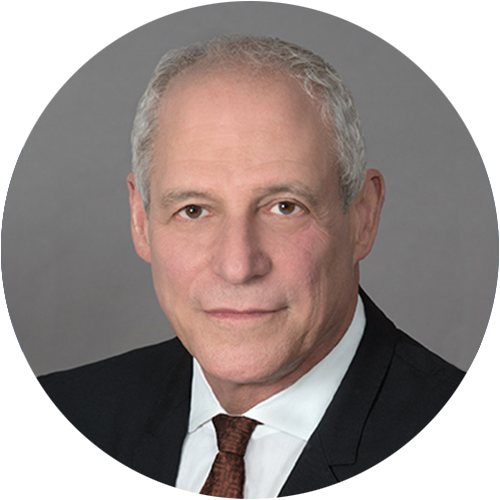2025 GSA Board
The GSA Board is the highest-ranking decision-making body of the Global Sepsis Alliance. It is elected democratically by the member organizations of the GSA every three years and consists of 20 members from all parts of the world. The current term is from August 2025 to August 2028.
Abdulelah Alhawsawi, Saudi Arabia
Abdulelah is Vice President of the GSA, Chair of the Eastern Mediterranean Sepsis Alliance, and founding Director-General of the Saudi Patient Safety Center (former) and MOH Advisor on Patient Safety. He holds the Dual Certified Board (American-Canadian) of Transplant and Hepatobiliary Surgery. Abdulelah is a consultant to several national and international quality and safety organizations. He was part of the Expert Panel on the 3rd Global Patient Safety Challenge of the WHO and chaired the Organizing Committee for the 4th Global Ministerial Summit on Patient Safety. Abdulelah has helped introduce Patient Safety as a G20 priority in the 2020 G20 of Saudi Arabia.
Maha Aljuaid, Saudi Arabia
Maha is a critical care nurse specialist working as a director of nursing of Ambulatory Care and Hemodialysis at King Abdulaziz Medical City. She is a member of the Scientific Nursing Council, the Clinical Advisory Group for Stroke, and leads several quality improvement projects, e.g., improving sepsis education for nurses. Her research interest includes improving sepsis care and sedation practices in the ICU. Maha has contributed to several publications at distinguished journals and obtained several poster awards.
Andrew Argent, South Africa
Andrew worked in Paediatric Critical Care in Cape Town for over 30 years and was director of the PICU at the RCWMCH for 20 years. He is a past president of the Critical Care Society of Southern Africa and the World Federation of Pediatric Intensive and Critical Care societies, and current Chair of the African Sepsis Alliance. He is passionate about research, teaching, and development of clinical services for children, particularly as regards Sepsis in Africa. We have to find elegant and efficient ways of beating sepsis in Africa, despite the challenges.
Antonio Artigas, Spain
Antonio is a Professor of Applied Physiology at the Autonomous University of Barcelona, Emeritus Director of the Intensive Care Medicine Department at Corporación Sanitaria Universitaria Parc Tauli, and Director of the Pathophysiological Translational and Cell Therapy Laboratory, member of the Executive Committee of ESA and GSA Boar,d and of the Advisory Committee of Sepsis of the Government in Catalonia. He is an Honorary member of ESICM, received the Educational Award of the ERS, and member of Académie Nationale de Médicine.
Ron Daniels, United Kingdom
Ron is Vice President of the GSA and an NHS Consultant in Intensive Care, based in Birmingham, UK. He’s the Founder and Chief Executive of the UK Sepsis Trust. Ron has operationally transformed the delivery of reliable sepsis care in the UK and beyond, through his creation of the Red Flag Sepsis recognition tool and the Sepsis 6 treatment pathway. In 2016, he was awarded the British Empire Medal for services to patients.
Alison Fox-Robichaud, Canada
Alison is Professor of Medicine at McMaster University and an ICU physician and Director of Medical Education at Hamilton Health Sciences. She is the Scientific Director of Sepsis Canada, a research collaborative of over 200 scientists, knowledge users and patients, and family partners. As a clinician-scientist scientist she studies sepsis from the bench to the bedside. She is president of the Canadian Sepsis Foundation, a not-for-profit organization for sepsis advocacy and awareness. In 2018, the Global Sepsis Alliance awarded her an individual GSA Award for her sepsis leadership.
Evangelos Giamarellos-Bourboulis, Greece
Evangelos is Chair of the European Sepsis Alliance and Professor of Internal Medicine and Infectious Diseases at the Medical School of the University of Athens with a subspecialty in the Immunology of Infections. In 2012 and 2013, he served as a guest Professor at the Jena University Hospital in Germany. He has 460 publications in international peer-reviewed journals. His main contributions are the development of clarithromycin as immunotherapy for septic shock and of anakinra for COVID-19 pneumonia in adults. Anakinra was registered by the European Medicines Agency through the phase 2 and phase 3 programs that he designed and directed.
Ally Hossain, New Zealand
Ally is the CEO of Sepsis Trust New Zealand, bringing 25 years of experience in journalism and communications to the role. She has worked in broadcast journalism and communications education at the tertiary level in the UK, Australia, and New Zealand. Ally has experience in both corporate and local government communications and community engagement, and now specialises in health communication. On behalf of the Sepsis Trust NZ, Ally is actively advocating to have a National Sepsis Action Plan adopted by the NZ Government. Ally is passionate about raising awareness of sepsis after her son's experience of it in 2024.
Shevin Jacob, Uganda
Shevin is an infectious diseases physician and Reader in Sepsis Research at the Liverpool School of Tropical Medicine. He has been conducting research on adult sepsis in resource-constrained settings for over a decade and currently co-directs the African Research Collaboration on Sepsis (ARCS). He also supports activities focused on improving the quality of clinical management for severely ill patients in Uganda through a collaboration between the Ministry of Health and Walimu, an Uganda-based non-government organization he co-founded. He serves as a consultant to the WHO for various working groups to improve the clinical management of sepsis and other severe illnesses in resource-constrained settings.
Niranjan ‘Tex’ Kissoon, Canada, President
Tex is President of the GSA and past President of the World Federation of Pediatric Intensive and Critical Care Societies. Professor at UBC & BC Children’s Hospital in Critical Care and Global Child Health, Vancouver, Canada. He also holds the UBC BC Children’s Hospital Endowed Chair in Acute and Critical Care for Global Child Health. In 2020 he received the Drs. Vidyasagar and Nagamani Dharmapuri Award, for Sustained Exemplary and Pioneering Achievements in the Care of Critically Ill and Injured Infants and Children.
Ulrika Knutsson, Sweden
Ulrika is a communications specialist. In 2015, she and Adam Linder founded Sepsisfonden in Sweden – a trust that has grown to be a major influencer in Sweden when it comes to spreading sepsis awareness to the public, as well as to decision-makers, and raising money for research. In her capacity as communications director at Sepsisfonden, she has also worked closely with the Swedish National Sepsis Plan committee. Sepsisfonden has, for example, been involved in providing the program with patient material. In 2020, Sepsisfonden received a GSA Award, much due to Ulrika’s efforts in the sepsis awareness work in Sweden.
Dennis Kredler, BelgiuM
Dennis is Vice President of the GSA. He survived severe sepsis in 2016, suffering amputation of parts of his foot. He is now an advocate for better preventive sepsis policies throughout the European Union. In his professional life, he is Head of the Brussels Office with Dow. He holds Economics degrees from the College of Europe, Bruges (Belgium), the University of Sussex (UK), and the University of Grenoble (France).
Mitchell Levy, United States
Mitchell is Chief, Division of Pulmonary, Critical Care, and Sleep Medicine at The Warren Alpert Medical School at Brown University. He is Past-President of the Society of Critical Care Medicine (2009). Mitchell’s current research interests include translational research in sepsis, clinical trial design, and end-of-life care in the ICU. He has authored over 200 peer-reviewed articles and book chapters. He is a founding and current member of the Surviving Sepsis Campaign (SSC) executive committee.
Imrana Malik, United States
Imrana is Chair of the GSA Fellowship Program and Associate Professor in the Department of Critical Care at MD Anderson Cancer Center (MDACC) in Houston, Texas. She is primarily involved in direct patient care in the medical and surgical intensive care units. Her main clinical research interest involves sepsis in cancer patients.
Naoyuki Matsuda, Japan
Naoyuki is a board member of the Japanese Society of Intensive Care Medicine and a representative of the Japanese Sepsis Alliance (JaSA). He has led emergency medicine and critical care medicine in Hokkaido university and Kyoto university and is currently working as a professor of Emergency & Critical Care Medicine at Nagoya University, Japan. He is a meritorious person who introduced WSD to Japan by holding the first clean hand campaign and WSD in Japan from 2012. He disseminates information on sepsis to healthcare professionals and the public, conducting research and academic activities on sepsis in Asia and the world.
Steve McGloughlin, Australia
Steve is an infectious diseases physician and intensivist, serving as the director of the intensive care unit at the Alfred Hospital in Melbourne. He is also a Professor of evidence synthesis at Monash University. His research and clinical interests are particularly focused on health systems improvement in sepsis and critical illness. He is the lead author of the Australian Therapeutic Guidelines Sepsis chapter and an author on the international Surviving Sepsis Guideline. He is the current Clinical Director of the Australian Living Evidence Collaboration. Steve has also been a consultant for the World Health Organization in the health emergencies and pandemic preparedness program.
Rafael Barberena Moraes, Brazil
Rafael is a critical care physician in Porto Alegre, southern Brazil. He holds a PhD in endocrinology and is a postgraduate professor of pulmonology. He is a member of the Latin American Sepsis Institute (LASI) and a member of the scientific committee of BRICNET (Brazilian Research Intensive Care Network). At LASI, he provides sepsis consulting services to Brazilian hospitals and develops the online teaching program. His scientific output focuses on sepsis epidemiology, sepsis awareness, hemodynamics, and post-ICU care.
Sheila Myatra, India
Sheila is a Professor of Critical Care Medicine, working at the Tata Memorial Hospital in Mumbai, India. She is the Chair of the Intensive & Critical Care Medicine Committee of the World Federation of Societies of Anaesthesiologists (WFSA) and the Past President of the Indian Society of Critical Care Medicine (ISCCM). She is a member of the Surviving Sepsis Campaign (SCC) Research Committee and the 2026 SSC Guidelines Committee. She is an active member of the Asia Pacific Sepsis Alliance (APSA) and has recently led the first global consensus Delphi on the management of adult sepsis in resource-limited settings through APSA.
Halima Salisu Kabara, Nigeria
Halima is a Practice Development Consultant, and the Sepsis Coordinator, SIDOK Sepsis Research Group, a multidisciplinary team from various hospitals in Kano, Nigeria; Development Manager of the Life Support Training Program, Anesthesiology/ICU, AKTH. Her vision is to eradicate preventable deaths due to sepsis in Nigeria and Africa, and quality healthcare in low-resource countries. She participated in the expert content development group and external peer review group that developed the Global Report on the Epidemiology and Burden of Sepsis: Current Evidence, Identifying Gaps, and Future Directions by the World Health Organization.
Ciarán Staunton, United States
Ciaran founded END SEPSIS in 2012 with his wife, Orlaith, following the death of their young son, Rory, from undiagnosed sepsis. END SEPSIS has transformed the sepsis landscape in the USA. It was instrumental in the implementation of Rory’s Regulations–mandatory sepsis protocols for hospitals–in New York State which saved 16,000 lives between 2015 and 2019 and in the passage of Rory Staunton’s Law, which requires sepsis and infection education for all healthcare workers. In 2014, Ciaran testified at the first-ever US Senate Hearing on Sepsis. In September 2022, END SEPSIS spearheaded the successful efforts to include sepsis funding and directives in the federal budget for the first time and for the Senate to declare September 13th National Sepsis Day.




















